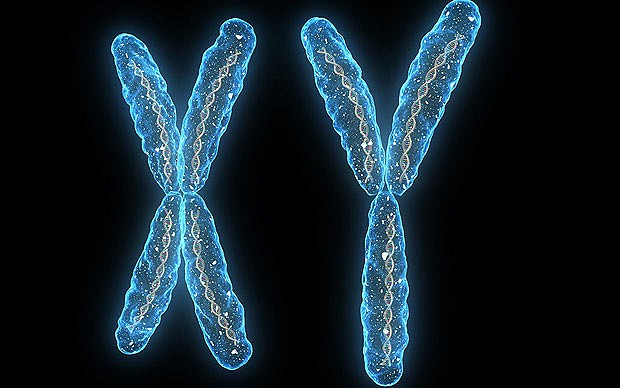Replacing the Y chromosome
The mammalian Y chromosome encodes a specialized set of genes that are essential for male viability and fertility. In particular, the sex-determining region Y (SRY) protein is necessary to initiate male sex determination. However, Yamauchi et al. show that the functions of the entire Y chromosome can be replaced with only two genes. In mice, two transgenes, Sox9 and Eif2s3x, compensated for the absence of all Y chromosome genes to allow successful sperm formation.
Abstract
The mammalian Y chromosome is considered a symbol of maleness, as it encodes a gene driving male sex determination, Sry, as well as a battery of other genes important for male reproduction. We previously demonstrated in the mouse that successful assisted reproduction can be achieved when the Y gene contribution is limited to only two genes,Sry and spermatogonial proliferation factor Eif2s3y. Here, we replaced Sry by transgenic activation of its downstream target Sox9, and Eif2s3y, by transgenic overexpression of its X chromosome–encoded homolog Eif2s3x. The resulting males with no Y chromosome genes produced haploid male gametes and sired offspring after assisted reproduction. Our findings support the existence of functional redundancy between the Y chromosome genes and their homologs encoded on other chromosomes.







